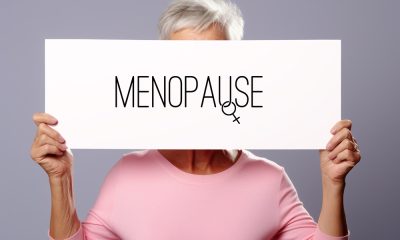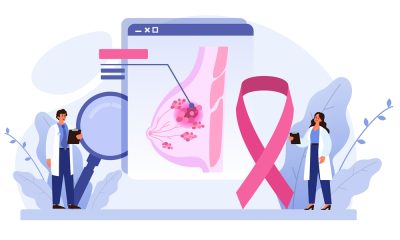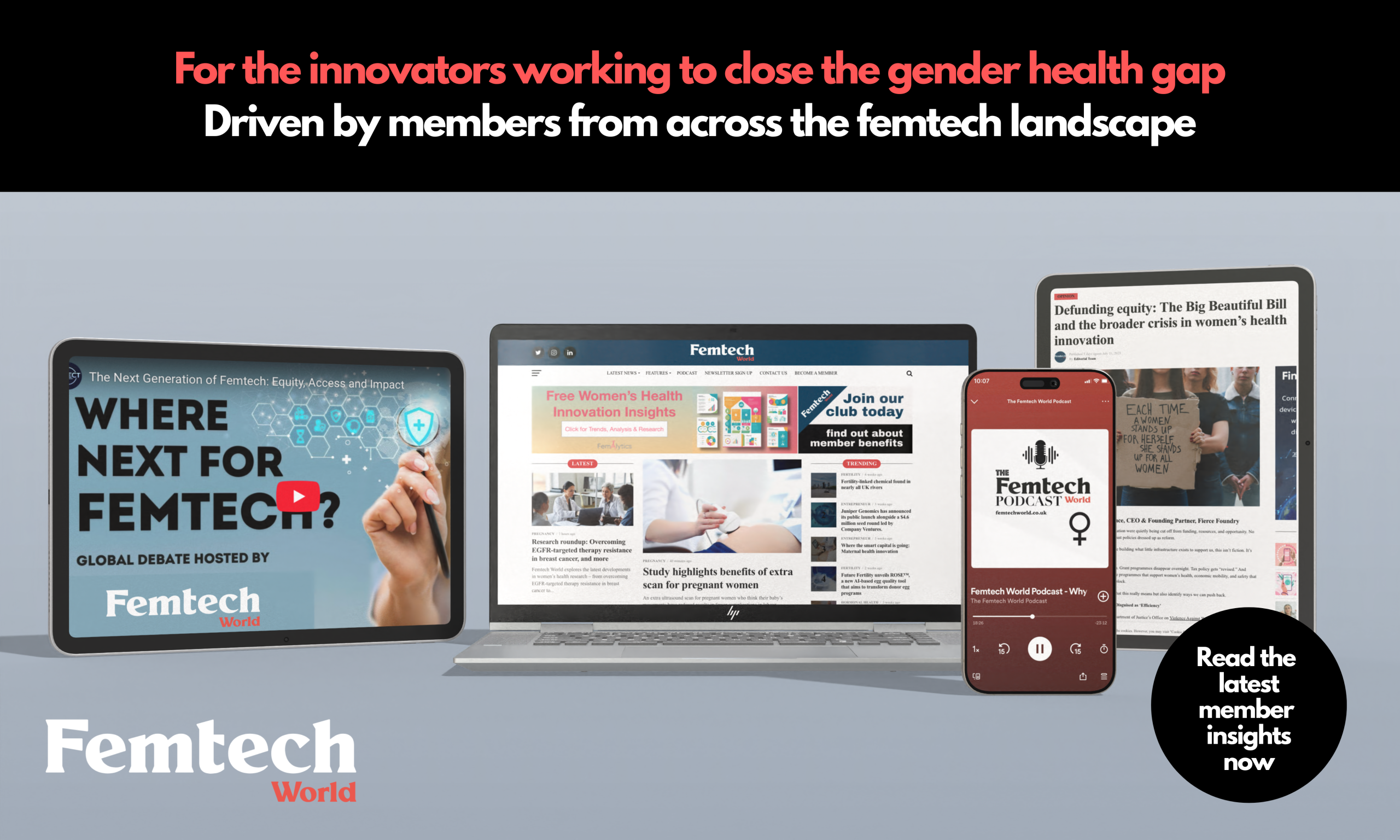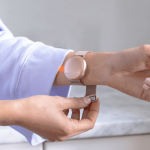Menopause
British Menopause Society publishes response to updated NICE guidance

The British Menopause Society (BMS) has published its response to updated menopause guidance issued by the National Institute for Health and Care Excellence (NICE), following a review and formal consultation process of guidance first published in 2015.
The organisation acknowledged several of the recommendations contained within the new guidance but has also identified some limitations for healthcare professionals to consider when advising patients.
In particular, BMS welcomed the continued recommendation to offer HRT, tailored to the individual, for the management of menopausal symptoms and the emphasis on the need to consider the impact of increased dosages of estrogen, and progestogen intake, on the risk of endometrial cancer.
With the recently well-publicised growth in providers offering menopause treatment, BMS also welcomed the call for healthcare professionals offering such expertise to be recognised by professional bodies including the BMS, the Faculty of Sexual and Reproductive Healthcare and the Royal College of Obstetricians and Gynaecologists.
The organisation also noted the treatment options available for genitourinary symptoms of menopause (vaginal dryness, discomfort or irritation and discomfort or pain during urination or sex) highlighted in the new guidance, including for women with a history of breast cancer.
Recognising the importance of providing women with a range of options, including non-hormonal interventions, BMS has also acknowledged the need for menopause-specific CBT to be more widely available, either as an alternative or addition to other treatment.
Robust clinical evidence continues to be of critical importance to the provision of safe and effective care for people experiencing menopause symptoms. BMS has therefore echoed the need for ongoing research into this area of women’s health.
Professor Janice Rymer, Chair of the BMS, said: “As the specialist authority on menopause established in 1989 to educate, inform and guide healthcare professionals, we welcome the provision of independently reviewed, up-to-date and accurate information on the menopause, together with a balanced review of the benefits and risks associated with HRT and other treatments.
“However, it is also important to recognise that there are limitations in the guidance published today so that these may be taken into consideration by clinicians when helping people experiencing the menopause to make informed choices tailored to their needs and clinical histories.”
The limitations identified in the guidance by BMS included the absence of a recommendation on the impact of early menopause on long term health and the role of HRT in protecting it.
BMS has also questioned the robustness of an analysis providing data on the risk of breast cancer from taking HRT in early menopause.
BMS also highlighted the exclusion of important studies relating to the risk of developing coronary heart disease from HRT and relevant French data on the lower risk of breast cancer from specific types of progesterone.
Professor Rymer added: “Awareness of these limitations is very important because GPs and other healthcare professionals need to factor them into the advice they pass on to patients when considering the right treatment or combination of treatments.”
Menopause
New report exposes perimenopause as biggest blind spot in women’s health

Women’s wellness company NNABI has released the first nationally representative research dedicated entirely to perimenopause.
The decade-plus hormonal life stage begins as early as mid-30s and is often dismissed, misdiagnosed or ignored.
The Peri Power Report uncovers a staggering awareness gap.
Although the US women surveyed were experiencing an average of seven perimenopause-related symptoms — including exhaustion, anxiety, brain fog, and disrupted sleep — nearly 40 per cent had never even considered perimenopause as the cause.
Instead, women overwhelmingly blamed stress (53 per cent), mental health (46 per cent), and ageing (46 per cent) for what are likely due to hormonal shifts.
Only 10 per cent had received a formal doctor diagnosis.
And yet, they continue to push through, 49 per cent admitting they feel they “should” be able to push through but are struggling silently.
Marina Pen is co-founder of NNABI.
Pen said: “Perimenopause shows up when women are at their peak responsibility years, running businesses, raising kids, caring for ageing parents, holding the world together.
“This report reveals how women are doing all of that without a roadmap for how to care for themselves in perimenopause. NNABI exists to change that.”
This report signals a cultural turning point.
Women are redefining what success looks like during this chapter.
Gone is the expectation to please and push through. Instead, they are prioritising joy, boundaries, and alignment with their values.
As one respondent put it: “Success is being unapologetically myself.”
NNABI is a women-founded wellness company redefining how women navigate perimenopause.
Known for its flagship botanical supplement, Peri Essential 5™, NNABI delivers doctor-formulated, clinically backed, and third-party tested support for the most common symptoms of perimenopause — including fatigue, brain fog, mood swings, poor sleep, and bloating.
With a focus on education, community, and science, NNABI is building the trusted platform women need during this pivotal life stage.
EJ Kim, co-founder of NNABI, said: “This report is more than research.
“It’s overdue validation and a call to action: put perimenopause at the centre of women’s health and meet women with clarity, compassion, and dedicated care that’s been missing for far too long.’”
Download the full report at https://nnabilife.com/pages/get-the-peri-power-report
News
Starting menopause therapy early may lower Alzheimer’s risk, study finds

Starting hormone therapy within five years of menopause could lower women’s Alzheimer’s risk by up to 32 per cent, but beginning at 65 or later may raise it, research shows.
The analysis pooled findings from more than 50 studies comparing women who used hormone replacement therapy (HRT) to those who did not.
Researchers from the Pandit Bhagwat Dayal Sharma Post Graduate Institute of Medical Sciences in India presented the results at the American Neurological Association’s annual meeting in Baltimore.
Women who started HRT around the time of menopausal transition saw a 22 to 32 per cent risk reduction.
By contrast, those starting at 65 or later had a 38 per cent higher risk, particularly with treatments containing progestin – a synthetic version of progesterone.
Lead researcher Dr FNU Vaibhav said: “Starting hormone replacement therapy early may give the brain some protection, but if a woman already has Alzheimer’s or memory problems, hormone therapy won’t slow them down.
“It’s like watering a plant: it helps when the plant is growing, but if it’s already wilting, it might be too late.”
HRT replaces oestrogen lost during menopause, easing symptoms such as hot flushes, night sweats and sleep disturbance.
It has also been linked to benefits for heart health and protection against age-related bone loss.
Just under 5 per cent of US women use HRT today, down from almost 26 per cent in 1999.
Researchers suggest that therapy begun during the transition may protect the brain by improving communication between nerve cells and reducing inflammation.
But once early Alzheimer’s changes are underway, added hormones may worsen problems by stressing blood vessels or fuelling inflammation.
Vaibhav said: “The evidence isn’t strong enough to suggest hormone replacement therapy should be taken to prevent Alzheimer’s.
“However, if a woman is planning to use it for menopause symptoms, starting soon after menopause might give her brain some protection against Alzheimer’s disease later.”
He advised that treatment should usually be limited to a few years and avoided entirely in the 60s or 70s.
Fertility
Round up: £1m for women’s health research and care

Femtech World explores the latest business developments in women’s health.
Portfolia launches women’s health fund
Investing fund Portfolia has launched the Women’s Health Fund IV for women’s health innovation.
The company has stated that Fund IV’s debut investment is in Gameto, a clinical-stage biotechnology company reprogramming female cells to transform fertility and hormonal care.
Portfolia’s investment is part of Gameto’s recently announced US$44m Series C financing, bringing its total raised capital to US$127m, one of the largest investments in the US biopharma sector focused on reproductive health to date.
Gameto’s lead programme, Fertilo, uses engineered ovarian support cells to mature eggs outside the body, reducing the standard two-week IVF hormone protocol to two to three days.
The company has begun enrolling patients in its Phase 3 trial in the US, building on its clinical use in Australia and Latin America, with five babies born and over 20 pregnancies recorded so far.
New partnership to advance health equity and women’s wellness services
Vivant Health has announced a new strategic partnership with Pandia Health, a women-led, women-founded telemedicine provider committed to improving access to comprehensive women’s healthcare.
The partnership aims to break down barriers to women’s healthcare, promote health equity, and deliver trusted, evidence-based services that support women’s health needs.
The collaboration is also designed to expand access to expert, affordable women’s health services for Vivant Health members.
As part of this partnership, Vivant Health members will gain streamlined access to Pandia Health’s expert physician-only online care and medication delivery services. This includes convenient telehealth consultations, easy prescription refills, and discreet home delivery of FDA-approved medication, all supported by a mission to empower women through accessible, data driven healthcare.
Mira Introduces Ultra4 at-home hormone monitor
Hormonal health company Mira has launched Ultra4 – an at-home hormone monitor to deliver lab-quality insights into four key hormones including FSH, LH, E3G, and PdG.
The test uses one wand and takes 16-minutes, enabling people to see their full cycle story with the same precision available in clinics.
The new kit measures FSH, LH, E3G, and PdG together — offering a complete hormonal profile across the cycle. This helps users identify imbalances, track shifts over time, and better understand fertility, perimenopause, and overall cycle health.
With Mira’s AI-powered app, users can also test any day of their cycle, or multiple times daily, for personalised insights.
New features include: 4D Ovulation Profiling, Egg Prep Scan, Hormonal Fingerprint, Cycle Balance Analysis, and Egg Count Intelligence.
Visana Health appoints chief commercial officer to drive new growth
Virtual women’s health clinic Visana Health has appointed Tom Maraday, a senior executive with over 35 years of experience in developing health and wellbeing solutions for large employers and payers, as chief commercial officer.
Tom will be responsible for leading national and regional health plan sales, driving activation with employers, and growing member enrollments, while leveraging his deep expertise in sales, marketing, and account management to create scalable infrastructure and build high-performing teams that advance Visana Health’s mission.
“Tom is a proven leader with a track record of leading high-performing, fast-growing teams and accelerating organisational growth across some of the most transformative sectors in healthcare,” said Joe Connolly, co-founder and CEO of Visana Health.
“His experience working with payers and employers to develop new health and wellbeing models is essential as we continue to deepen our relationships with current payers and scale our model to more payers and self-funded employers across the US, ensuring every woman is heard and helped.”
Tom’s roles have included scaling fast-growing businesses and innovative care models, including virtual healthcare, preventive/proactive care and value-based care for organisations, such as Omada Health, EHE Health, Bright Horizons and Plus One (now Optum).
New partnership commits US£1m for women’s health research and care
The Shoppers Foundation for Women’s Health is advancing health equity for women with a US$1m investment in health research and care, over the next two years, through Women’s Health Collective Canada (WHCC), the largest non-government funder of women’s health research in Canada.
The investment will support research on, and improved care for menopause.
This latest investment builds on three years of sustained partnership, with total contributions to WHCC of over US$3m.
“This is more than generosity, it’s leadership,” said Amy Flood, executive director at WHCC.
“Shoppers has believed in our work from the beginning, and they’ve helped shape a movement. With this renewed commitment, we’re taking meaningful steps toward a new standard of care for menopause in Canada, something long overdue.
“Together, we’re reaching more women, funding more research, and making the case for system-wide change.”
“We are proud to continue our partnership with WHCC to help close the women’s health gap in Canada,” said Paulette Minard, director of community investment, Shoppers Foundation for Women’s Health.
“This investment reflects our ongoing commitment to supporting women in our communities at every life stage, through better research, better care, and better outcomes.”
This investment will support the development of an enhanced, evidence-based standard of care for menopause in Canada.
Through the WHCC national network, funding will help accelerate local and regional initiatives.
Progyny study reveals gap between perceptions and realities in women’s health benefits coverage
Family building solutions company Progyny has announced the results of its new national Women in the Workplace research conducted in partnership with Dynata, the world’s largest first-party data company for insights, activation and measurement.
The study reveals a persistent gap between what employees want from their women’s health benefits, and what employers believe they are providing.
Specifically, results show that 81 per cent of HR leaders say they’re committed to advancing women’s health and well-being in the workplace, but only 52 per cent of working women believe their benefits make healthcare affordable.
“The trend of women seeking out and even changing jobs for better benefits has been a persistent one the past few years. This study proves that women know what they want, and they are raising their voices.
“Simultaneously, HR leaders are aware of this trend and are eager to expand their women’s health benefits to get ahead in talent recruitment and retention,” said Katie Higgins, CCO at Progyny.
“Where the mark in women’s health benefits may be missed is with the absence of a unified benefit that provides success to both sides – covers the continuum of care for women, increases engagement, results in clinical impact, and provides cost-control.”
According to the study, while most employers express a strong interest in supporting women’s health, they are unknowingly falling short in delivering access to specialised care, clear benefits navigation, and the personalisation employees expect, particularly across critical life stages like fertility, pregnancy, and menopause.
It’s not enough to simply offer a women’s health benefit or access to a digital tool – the benefit needs to be designed and implemented with intention.
This new research shows leading concerns among female employees; for example, 83 per cent of women say benefits that support coaching and treatment for menopause are important, only 12 per cent say their employer does a good job in providing them.
Further, nearly one in four women (24 per cent) who wanted to use a benefit gave up because it was too complex to understand or access, and 83 per cent of women and 88 per cent of employers agree that centralised support from one place would make women’s health benefits more effective.

 Fertility4 days ago
Fertility4 days agoScientists turn human skin cells into eggs in IVF breakthrough

 Hormonal health5 days ago
Hormonal health5 days agoFDA plans to revise black box warning on menopause hormone therapies

 News5 days ago
News5 days agoDaily pill could delay menopause ‘by years,’ study finds

 News4 days ago
News4 days agoMothers’, not fathers’, mental health directly linked to their children’s, study shows

 News3 days ago
News3 days agoManagers still unprepared to discuss menstrual health, study finds

 News1 day ago
News1 day agoAI-powered women’s health companion Nexus launches in UK

 News3 days ago
News3 days agoAncient herb to modern must-have: Why ashwagandha is capturing UK women’s attention

 Insight3 days ago
Insight3 days agoDrug improves survival in triple-negative breast cancer





















2 Comments